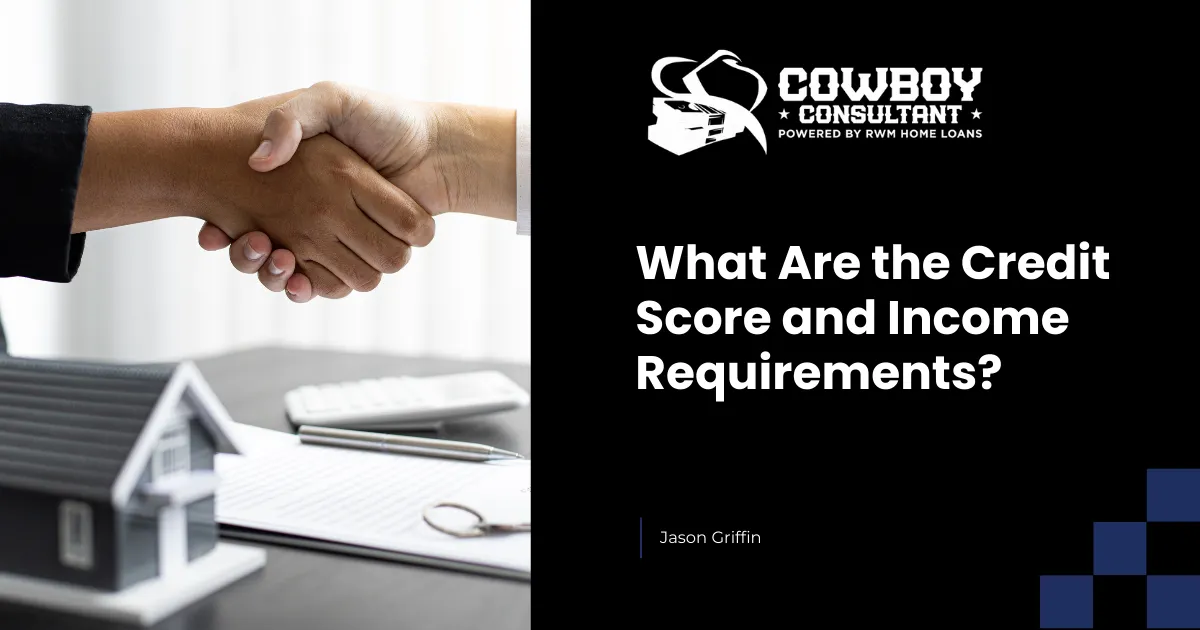
What Are the Credit Score and Income Requirements?
You Don’t Need Perfect Credit—But You Do Need to Be Prepared
When people think about buying a home, one of the first things they worry about is whether their credit score or income is “good enough.” The good news? You don’t need a perfect score or six-figure salary to become a homeowner. But understanding the minimum requirements can help you plan smart and avoid surprises.
Let’s break it down.
Minimum Credit Score Requirements by Loan Type
Each mortgage program sets its own credit score standards. Here’s what most lenders look for:
FHA Loans: Minimum credit score of 580 for 3.5% down payment. Some lenders may accept scores as low as 500, but that requires a 10% down payment.
Source: https://www.hud.gov/program_offices/housing/sfh/fharesourcectrConventional Loans: Most lenders require a 620 minimum, though you’ll need a higher score (typically 740+) to qualify for the best rates and terms.
Source: https://www.fanniemae.comVA Loans (for eligible veterans): No official minimum credit score, but lenders typically want to see at least 580–620.
Source: https://www.va.gov/housing-assistance/home-loansUSDA Loans: No formal credit minimum, but most lenders look for at least a 640 to use automated underwriting.
Source: https://www.rd.usda.gov/programs-services/single-family-housing-programs/single-family-housing-guaranteed-loan-program
What About Income? It’s More About Ratios Than Raw Numbers
You don’t need a specific dollar amount of income to qualify for a mortgage. What lenders care about most is your debt-to-income (DTI) ratio—that is, how much of your monthly income goes toward debt payments (including your new mortgage).
Most programs prefer a DTI ratio below 43%, but FHA loans may allow up to 50% in certain cases.
You’ll also need to prove stable income with documentation like pay stubs, W-2s, tax returns, or profit-and-loss statements if you’re self-employed.
The higher your income (relative to your debts), the more purchasing power you’ll typically have.
What If You’re Close But Not Quite There Yet?
Don’t worry—if your credit score or DTI ratio isn’t quite where it needs to be, you still have options:
Credit repair: Small improvements can lead to big savings in your rate.
Co-borrowers or cosigners: Another source of income may help you qualify.
Down payment assistance: Many local and state programs offer help that can improve your financial picture.
Bottom Line
Your credit score and income don’t have to be perfect—they just need to be positioned right for the loan you’re aiming for. The key is knowing what lenders look for, where you stand now, and what steps can help you close the gap if needed.
If you’re not sure what program fits you best, that’s exactly what a good mortgage advisor is for. Because getting clear on your numbers is the first step toward making homeownership a reality.


